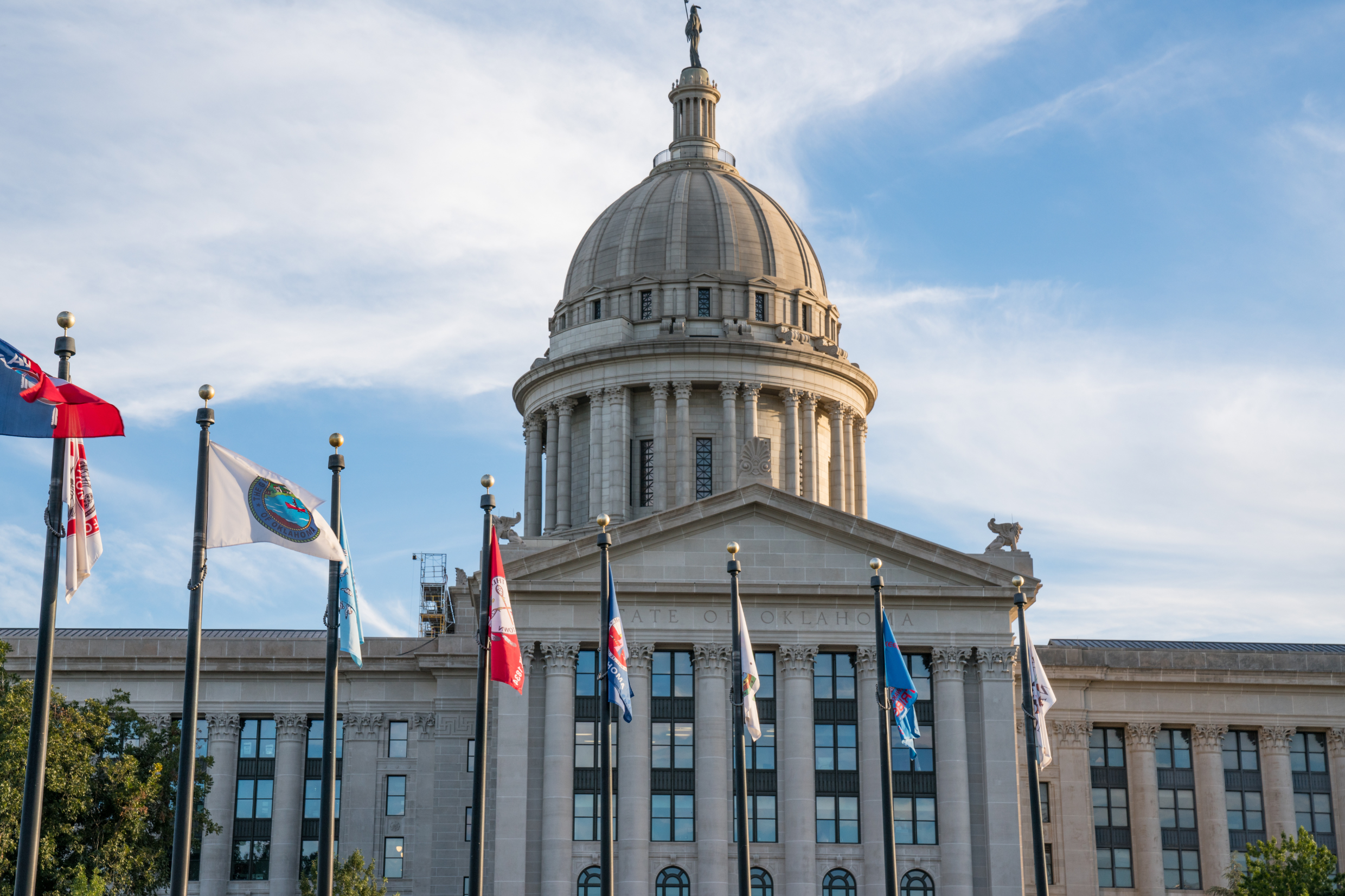
- Details
- By Darren Thompson
OKLAHOMA CITY— Oklahoma Governor Kevin Stitt, a citizen of the Cherokee Nation, vetoed a bill yesterday that would have allowed students to wear tribal regalia at school functions.
Senate Bill 429 passed the Oklahoma legislature last Monday, April 24, 90 to 1, and would have ensured Native students in all schools are allowed to wear tribal regalia at high school graduations and other ceremonies throughout the state.
“With this legislation, Governor Stitt had an opportunity to support religious freedom and families honoring their kids’ high school accomplishments,” Chuck Hoskin Jr., Principal Chief of the Cherokee Nation of Oklahoma, told Native News Online. “Instead, he’s chosen more division and insults to his Native American constituents.”
Tell Us What You Think
Stitt wrote of his decision that if the bill became law, it would open up additional efforts by other groups to push for their agendas.
“Should this bill become law, the proverbial Pandora’s box will be opened for other groups to go over the heads of local superintendents and demand special favor to wear whatever they please at a formal ceremony,” Stitt wrote in his veto message.
Stitt added that the decision to allow students to wear traditional items such as eagle feathers or regalia rests with local school districts and not the state government.
“To be clear, Oklahoma law protects the right of Native American students to wear tribal regalia and other culturally significant items during graduation ceremonies,” Hoskin said. “This bill would have simply made those rights more clear so public school administrators do not mistakenly violate them. That’s why the Legislature approved this bill, along with other bills supported by tribes, with nearly unanimous, bipartisan votes.”
Choctaw Nation of Oklahoma Chief Gary Batton also issued the following statement regarding Stitt’s veto of SB 429.
“This bill, which would have allowed all Native American students in Oklahoma to wear tribal regalia at school ceremonies, is not controversial. It allows the students to honor their native culture and traditions. In fact, only one member of the Legislature voted against it,” Batton said. “This is a popular, common-sense measure with no costs for the state or schools. We hope the House and the Senate will quickly override the veto to provide more freedom for Oklahoma students who want to honor their heritage.”
According to the Oklahoma State Department of Education (OSDE), in 2020, there were approximately 156,000 American Indian students who were enrolled in at least one of the 39 Tribal Nations of Oklahoma.
More Stories Like This
Native News Weekly (August 25, 2024): D.C. BriefsUS Presidents in Their Own Words Concerning American Indians
Indigenous Actor Elaine Miles Reports Detention by Alleged ICE Agents
Happy Thanksgiving from Native News Online
Coming Up on Native Bidaské: Behind the Animation: Joey Clift Talks “Pow” and Native Storytelling
Help us tell the stories that could save Native languages and food traditions
At a critical moment for Indian Country, Native News Online is embarking on our most ambitious reporting project yet: "Cultivating Culture," a three-year investigation into two forces shaping Native community survival—food sovereignty and language revitalization.
The devastating impact of COVID-19 accelerated the loss of Native elders and with them, irreplaceable cultural knowledge. Yet across tribal communities, innovative leaders are fighting back, reclaiming traditional food systems and breathing new life into Native languages. These aren't just cultural preservation efforts—they're powerful pathways to community health, healing, and resilience.
Our dedicated reporting team will spend three years documenting these stories through on-the-ground reporting in 18 tribal communities, producing over 200 in-depth stories, 18 podcast episodes, and multimedia content that amplifies Indigenous voices. We'll show policymakers, funders, and allies how cultural restoration directly impacts physical and mental wellness while celebrating successful models of sovereignty and self-determination.
This isn't corporate media parachuting into Indian Country for a quick story. This is sustained, relationship-based journalism by Native reporters who understand these communities. It's "Warrior Journalism"—fearless reporting that serves the 5.5 million readers who depend on us for news that mainstream media often ignores.
We need your help right now. While we've secured partial funding, we're still $450,000 short of our three-year budget. Our immediate goal is $25,000 this month to keep this critical work moving forward—funding reporter salaries, travel to remote communities, photography, and the deep reporting these stories deserve.
Every dollar directly supports Indigenous journalists telling Indigenous stories. Whether it's $5 or $50, your contribution ensures these vital narratives of resilience, innovation, and hope don't disappear into silence.
 The stakes couldn't be higher. Native languages are being lost at an alarming rate. Food insecurity plagues many tribal communities. But solutions are emerging, and these stories need to be told.
The stakes couldn't be higher. Native languages are being lost at an alarming rate. Food insecurity plagues many tribal communities. But solutions are emerging, and these stories need to be told.
Support independent Native journalism. Fund the stories that matter.
Levi Rickert (Potawatomi), Editor & Publisher
